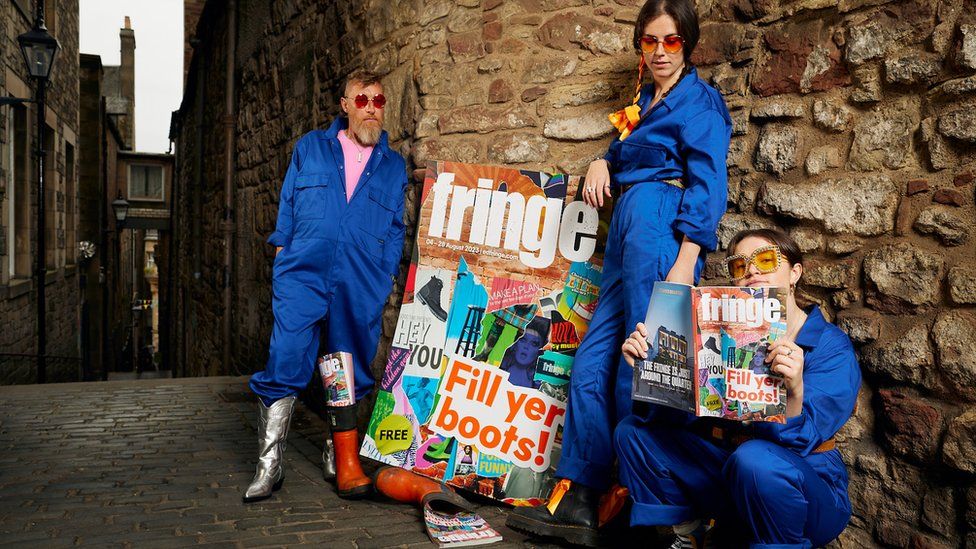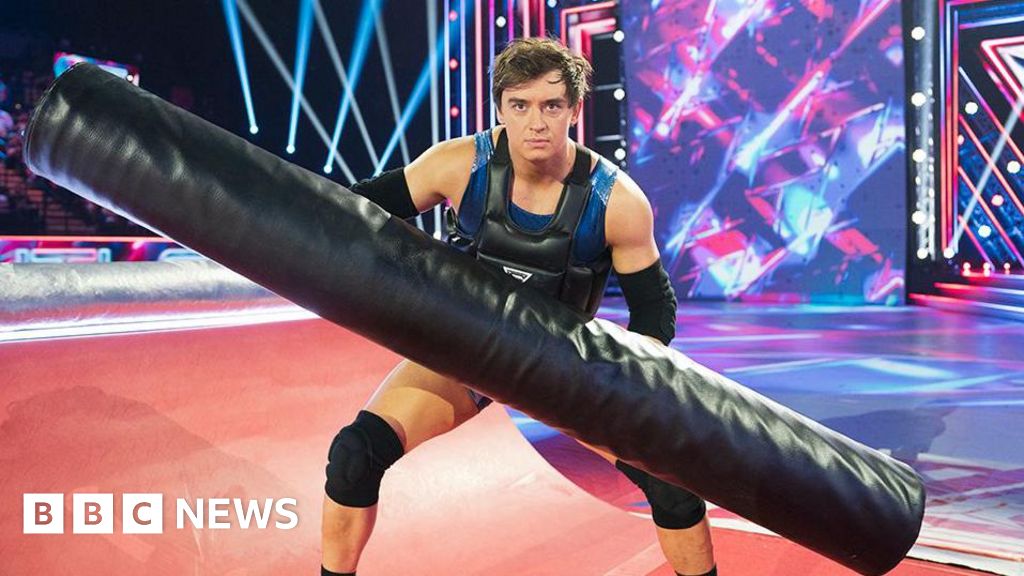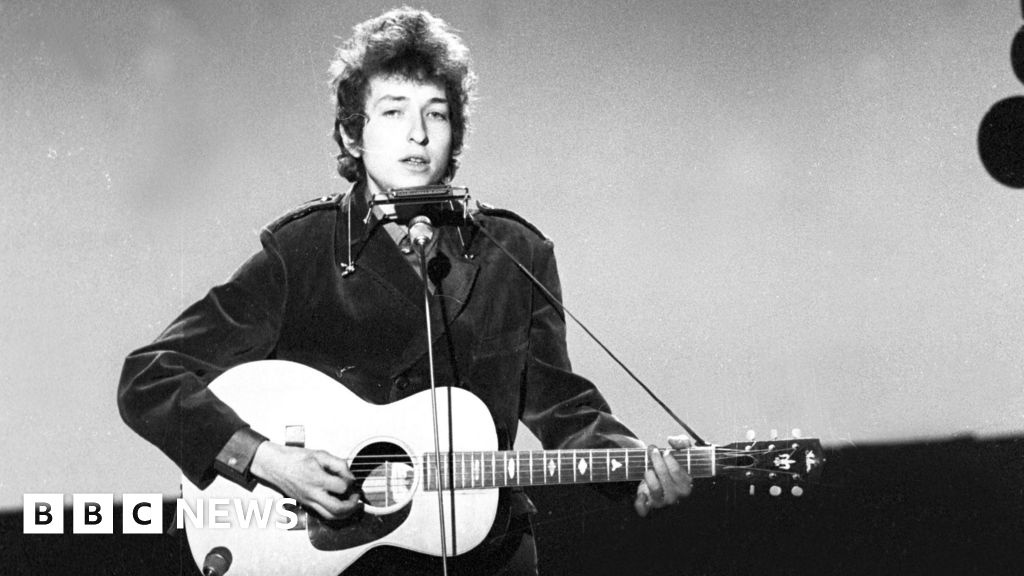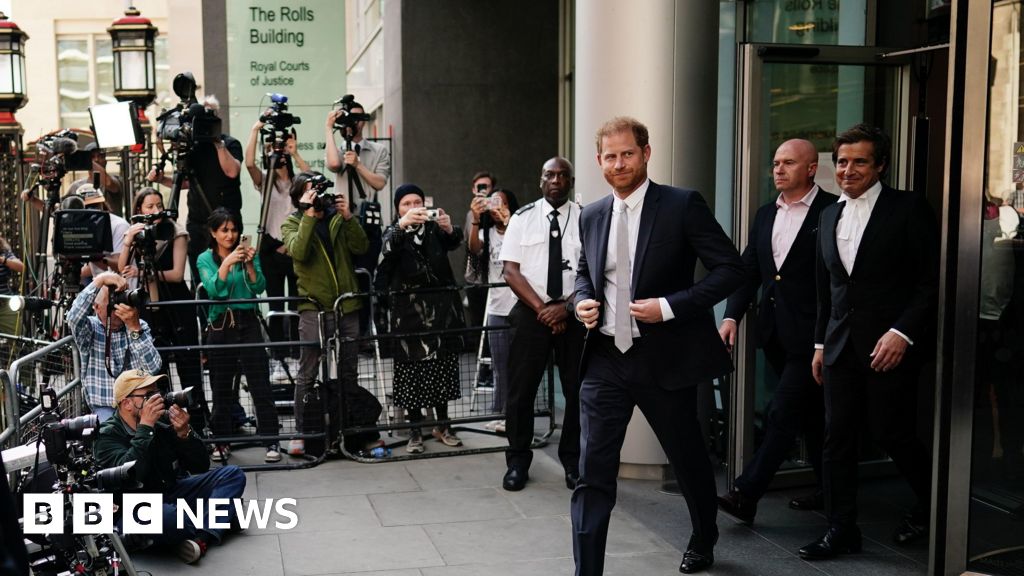ARTICLE AD BOX
 Image source, PETER DIBDIN
Image source, PETER DIBDIN
The Fringe has 3,535 shows registered in 248 venues during the 2023 programme
By Pauline McLean
BBC Scotland arts correspondent
The Edinburgh Fringe was the sort of last-minute decision which could easily have fizzled out before it even began.
Eight companies, mainly Scottish, turned up uninvited to the first Edinburgh International Festival in 1947.
They set up wherever they could find a space, and hoped their fresh, rebellious approach would appeal to an audience starved of culture during World War Two.
The name - taken to signify their place on the edge of the main event - is possibly the only thing unchanged in the 76 years since.
Now, launching on Friday with 3,535 shows registered in 248 venues, it is the Fringe which dominates the city each year and nothing seems to stand in its way.
From a complete dearth of shows during the pandemic in 2020, the Fringe has returned to close to the numbers seen in 2019 - the highest on record.
And that's despite increased costs and a squeeze on affordable accommodation.
So why will performers do anything to get to Edinburgh?
For New York-based playwrights and performers Emily Allan and Leah Hennessey, it was about following their heroes.
"The Mighty Boosh started here," says Leah. "Even going back to Dudley Moore and Peter Cook, Stephen Fry and Hugh Laurie, Rowan Atkinson.
"These are the people that make us want to do comedy so knowing they all started here and that this was the place which fostered that anarchic, clever comedy makes us want to be here too."
So determined were they to get to the Fringe, they launched a Crowdfunder at the Tribeca Festival to raise the money they needed to bring their show - Slash - to Edinburgh this summer.
Image source, Michelle Mangan PR
Image caption,New York-based playwrights and performers Emily Allan and Leah Hennessey
Leah added: "As amazing as New York is, and as many opportunities as we have there, for our passions and taste there's nowhere like the Fringe."
The bulk of their costs have gone on travel and accommodation, which they've deliberately taken on the outskirts of the city to keep costs low.
Even then, they think breaking even is the best outcome they can hope for.
'International platform'
Harley Mann, and the Melbourne-based Na Djinang Circus, have the support of a venue devoted to Australian culture.
They use circus and physical theatre to explore modern Australian identity and for Harley, raising the profile of his own culture on an international stage is paramount.
Image source, Nick Bowers
Image caption,Harley Mann, Australian First Nation performer
"My family are Waaka Waaka from Queensland, Australia," he says.
"I've known about the Fringe for a long time. We've done Adelaide which is the second largest and when the opportunity came along we couldn't shy away from it.
"It's an opportunity as First Nation Australians to represent our Aboriginal culture on an international platform and represent a story which is growing in Australia but isn't quite heard around the world yet."
Sarah de Nordwall is a performance poet who first came to the Fringe as a teenager almost 40 years ago.
She said: "I used to think the Fringe was just for young people, as it was when I first came here, but I decided to give it a go. And then Covid came along."
Sarah De Nordwall holds hopes of being "discovered" at the Fringe
But she persevered and has secured a slot for a two-week run in the second half of the festival.
Sarah agrees that non-performers often wonder why anyone comes to the Fringe.
"Why put yourself through the agony? Because everything's fresh," she said.
"Everything's new and if I bring philosophical poetry, it'll find an audience. And you just get refreshed by everyone else and their enthusiasm as well."
Although, like many performers, Sarah does harbour a desire to be "spotted" just as Phoebe Waller-Bridge was in 2013 when she first performed her show Fleabag.
"I have this dream that I'd really like to be a bard in residence in some kind of philosophical environment and this is the sort of place where that sort of thing might happen. Anything can happen at the Fringe."
Image source, Getty Images
Image caption,Phoebe Waller-Bridge is now honorary president of the Edinburgh Festival Fringe Society
So the stage is set, and the shows are ready. But will the audiences return in those pre-pandemic numbers?
Fringe CEO Shona McCarthy hopes so.
She said: "We've no growth agenda for the Fringe at all in terms of the scale of the offer or the number of shows, but the way we want the festival to grow and the best way to support the artists who've taken the risk to bring work here is by going to see the shows.
"It's a message I'll be repeating. Go see the shows. Enjoy this creative explosion which is happening on our own doorstep."

 1 year ago
49
1 year ago
49








 English (US) ·
English (US) ·